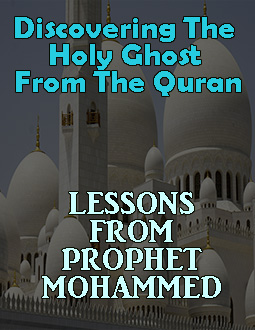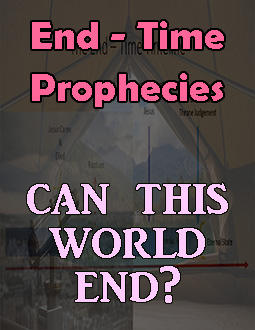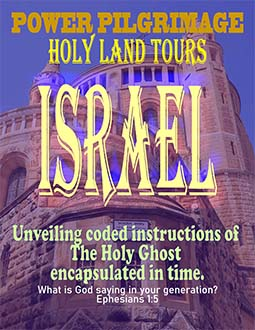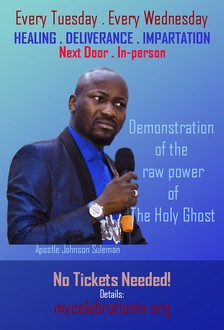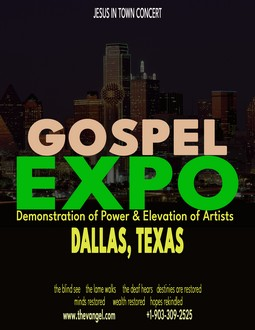Jeremiah The Prophet of Terror
Jeremiah was not in search of the power but apparently was curious enough about God for him to catch the attention of God that initiated his call. Then, God touched him, and everything changed. Jeremiah’s very simple message of “Repent, flee from idolatry and return to God for your salvation” turned out the biggest prose in the Bible. Jeremiah makes us know that in this dispensation of the Holy Spirit that the Messiah is coming back again for His own bride. So, Jeremimah prepares us as he prepared Judah.
The Omnipotence of God
“I am only but a child,” Jeremiah is often quoted to indicate his degree of incompetence to be God’s messenger. Such protests are very common for most biblical prophets. Such meekness appears to be common among the spiritual giants that we will be looking at in this attempt to unveil the relevance of history and prophecy of End Time events, particularly as they govern our contemporary existence. These apparently incompetent people from Noah to Moses to Samuel to David to Isaiah to Jeremiah to Daniel and Ezekiel to include Paul and John provide some unusual insight into what transforms a child into a powerful prophet that tells kings and emperors to shut up within their own palaces. Daniel and his gang of Hebrew boys were 15 years old when they told Nebuchadnezzar, The Emperor of the World, to sort of jump off the cliff.

In The Evangel, we are about unveiling the secret power made Elijah to overrun Ahaz chariot of choice horses. How the same power caused men to change their minds and a whole city demanded that Paul and Barnabas address a crusade (Acts 13:44). Jeremiah was probably not in search of the power but apparently was curious enough about God for him to catch the attention of God that initiated his call. Then, God touched him, and everything changed. Why did Isaiah’s tongue not get burnt when hot coal was placed on it? Instead, his attitude and perspective changed instantly. Dream, or real life, something measurable changed about these people. What may be responsible? That is what we intend to unravel in our series.
Jeremiah’s very simple message of “Repent, flee from idolatry and return to God for your salvation” turned out the biggest prose in the Bible. Yet, it was at a cost. The sociopolitical situation made the message challenging for the people and the government. Jeremiah got depressed like others, but the power of God was irresistible for him. That power propelled through five governments over 40 years, yet the message never wavered. More importantly, what is this power? We hope to decipher its footprints in this study. It is wise to discover the Holy Ghost or disprove the concept.
The Man - Jeremiah
A Child called Jerry
A shocked Jeremiah was called to be a prophet at age 20. The shock may have more to do with the trauma he must cause others by accepting the call at this age. Certainly, a Levite born to Hilkiah of Anathoth, which is about 4 miles north of Jerusalem, but he was of a regular person who probably had a girlfriend in tow as his future wife. Priesthood may be something amenable to his character but becoming a prophet was not his agenda if we judge his reactions. His parents must have been devastated because the embarrassment caused his in-laws-in-waiting. Yet, Samuel was called at age 13 and Daniel was only 15 years when he was taken to Babylon. Age 20 must have been highly disruptive of a maturing lifestyle. But he loved God. And then, he was ordained to be celibate. How does one get called?
For a child to recognize the supernaturality of the interaction, there must have been something unusual that happened. Supernatural interaction is the key. Moses was wide awake when he had to analyze the burning bush, but Samuel was fast asleep. Apostle Paul was confronted in broad daylight. What is supernatural interaction? We hope to learn from Prophet Jeremiah how some of these happen.
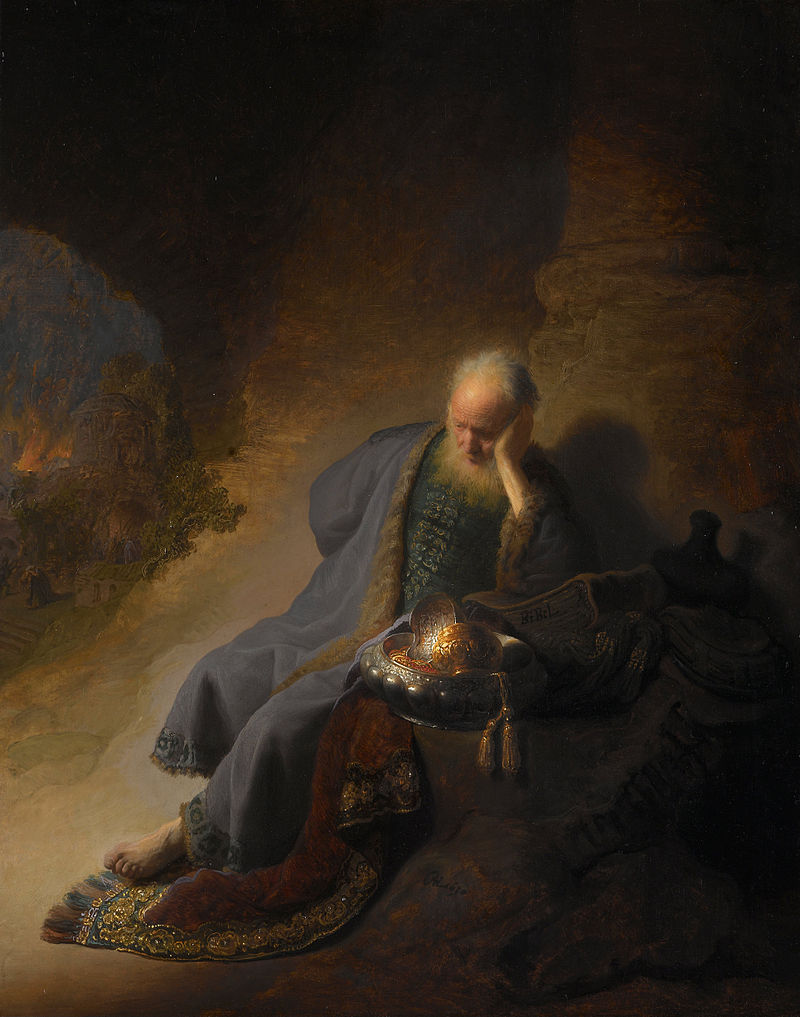
God raised Jeremiah to warn the remaining segments of Israel, particularly Judah, the Southern Kingdom about God’s impending judgment if the nation continues to violate their covenant through idolatry (Jeremiah 1). Jeremiah did this courageously over more than 40 years of personal pain and watched the fall of Judah as the last five kings of the kingdom, namely, Josiah, Jehoahaz, Jehoiakim, Jehoiachin and Zedekiah were destroyed along with the beauty of the nation. He explained some of the earlier prophecies. He gave insight into some of the words of Isaiah specifically and was a source of inspiration to the exilic prophets including Daniel and Ezekiel.
The Prophetic Call of Jeremiah
Call To Prophetic Ministry
“Getting wisdom is the wisest thing you can do! And whatever else you do, develop good judgment” (Proverbs 4:7, NLT). The supernatural will always be a challenge. The challenge is not less so in my 21st Century world. Prophecy as a manifestation of the supernatural deserves its respect but will always be treated with caution. Yet, it is very relevant to our routine existence and requires understanding. It opens us to supernatural guidance. King Josiah understood this when he sought the counsel of prophetess Hulda and followed God’s guidance (2 Kings 22; 2 Chronicles 34; Jeremiah 22. Therefore, it is wise to learn about prophecy rather than allow the fear of its extra-normal influence keep us from acquiring the understanding of spiritual manifestations like prophecy.
Naturally, it becomes appropriate to wonder who prophets are, or who has the right to wear that label. The source of guidance is important as exemplified in the reigns of King Josiah versus his successors as documented by Jeremiah. The other kings followed the advice of false prophets. Magicians and sorcerers confused The Pharaoh when Moses tried to deliver the divine message. This grayish area commonly confuses many young people trying to figure out the difference between the fake versus the genuine.
To wit, priests are not prophets. Some may be called to prophecy as we in the case of Jeremiah, Zechariah, and Ezekiel but princes like Saul and Daniel were not priests. Priests are professionals trained to administer rituals on behalf of and for the people of God. Priests preach and teach the mind of God to the people; prophets however declare by some supernatural invocation the concerns of God. They are both messengers of God but with separate responsibilities. Prophets declare history in advance.
To declare means to exhibit authority through a claim. Since, man cannot create anything new, where does the confidence to declare a future come from? It is certainly beyond recognized human ability, hence, supernatural. “... Today I appoint you to stand up against nations and kingdoms. Some you must uproot and tear down, destroy and overthrow. Others you must build up and plant” (Jeremiah 1:10, NLT). Even Jesus Christ was accused of invoking supernatural evil forces for His miracles (Matthew 9:34; Matthew 12:24). Essentially, certain forces beyond human control influence human activity.
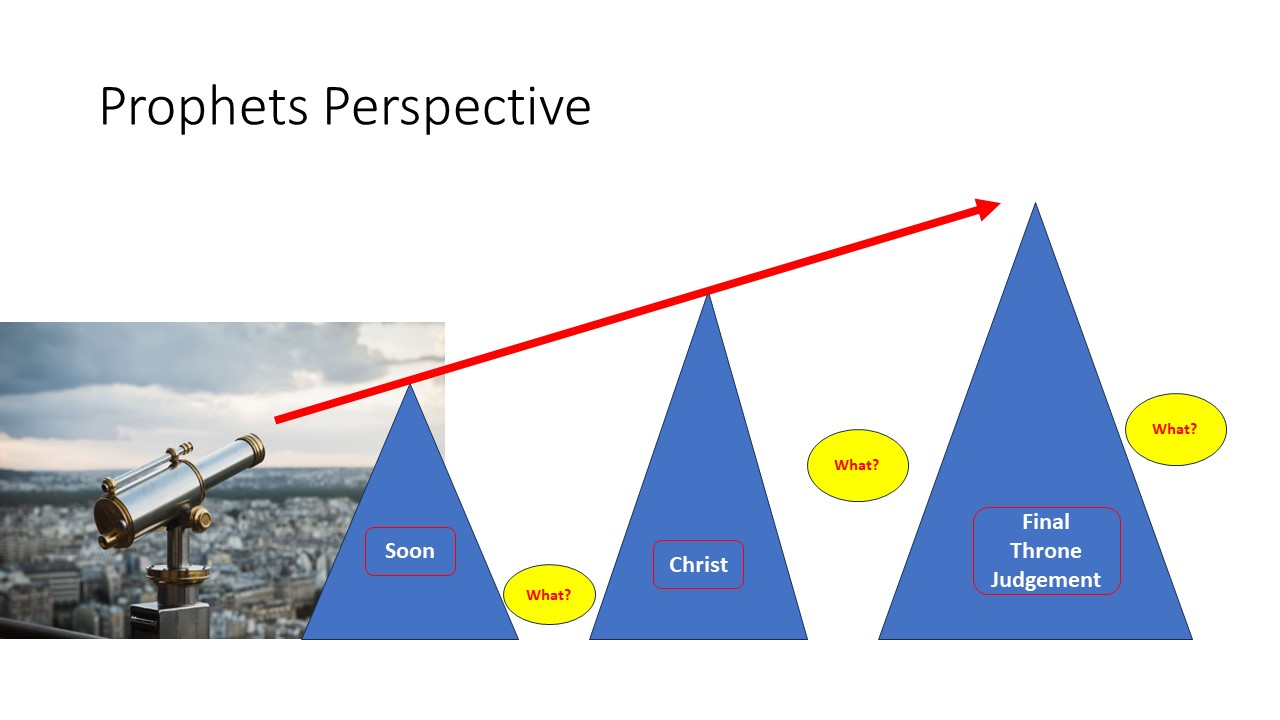
Genuine prophecy exists for guidance. In our dispensation of The Holy Spirit, we are thought to examine this phenomenon through the lens of Jesus Christ. Predictions may come because someone is able to catch a glimpse into the supernatural, however if they do not provide guidance, then they are unhelpful and very unlikely to be inspired by the Holy Ghost. For example, someone walked to me in church and told me to expect an evil arrow. No more, very unspecific, no idea of how to prevent it or manage it. The arrow as I knew it would come because I knew this person anyway. I was shielding myself around my health with prayers, but the hit was a financial disappointment. God instantly provided an alternative, but the phenomenon was marked.
Prophecies are meant to provide guidance as warnings that alter a particular course that would otherwise lead to negative outcomes. The nation was waxing in error and Jeremiah was raised to warn them. Sadly, unlike Nineveh where the entire nation repented, the kings of Judah punished the prophet for bringing prophecies of doom. The character of prophecies exemplified by Jeremiah discuss the problem, the consequences of continuing in them and potential remedies. Even when we have gone beyond change, God always makes a provision to accommodate repentance. Jeremiah insisted that if Judah cooperated with Babylon, the punishment could be mitigated, or its severity reduced. Instead of simply turning away from idolatry and oppressing the wicked, the kings turned to wasting the prophet.

A prophecy may identify a roadblock, but it should have the solutions to removing or bypassing the roadblock. There was the point when all Jeremiah was begging for was national repentance to avoid the invasion by Babylon (Jeremiah 25). He was mocked. Later, Jeremaih said it was too late to avoid the invasion by Babylon, just cooperate with Nebuchadnezzar; yet he was mocked and persecuted (Jeremiah 39). He had to write to the captives to cooperate and live their lives wherever they found themselves because it would take them some time to come back (Jeremiah 52).
Prophets have responsibility for insight, foresight, and oversight for the issues that they are charged to solve. Among the works quoted by Jeremiah included the writings of Prophet Isaiah concerning the sin of idolatry and the consequences. Therefore, he had some insight into the meaning of the vision that God was revealing to him. He got such insight from studying about God. He can describe the pictures of potential outcomes in the future as revealed to him by God as a foreknowledge of history. When these events happen, we know that the prophet had foresight. Moses was grown up in the palaces of Pharaoh to learn the princely ways of the Egyptians and have direct access to the king. That is insight. Moses guided Israel with his words and some of the words that he left us with are still manifesting in the 21st Century. Even Jeremiah, Jesus and his disciples continue to quote him, that is foresight.
Therefore, these chapters are prophetic in nature, and we must continue to be on guard for their fulfilment. A recurring theme is that opposing kingdoms and powers tended to target the destruction of the Temple in Jerusalem as their spiritual agenda. However, God destroys all of them and sets up His own government over the nations with His prince sitting on His right.
In chapter nine, we see Daniel back on his knees interceding for the release of the Jews from captivity according to God’s promise to prophet Jeremiah. We also see God’s reply that since the people remain adamant in their sins, they had an extension of four hundred and ninety more years to repent.
In addition, they have oversight responsibilities for the prophecies. We see Moses through most of the journey out of Egypt on the way to the Promised Land. Even in the worst of times, Jeremiah kept on hammering on repentance from idolatry to Zedekiah as the only solution to greater pain that is imminent. He even wrote to those in exile simply to cooperate with Babylon for the next 70 years by living normal lives as much as was allowed.
So, how does one become a prophet? We have established that it is the Holy Ghost inspired, yet how does one handle the spiritual transmission into physical reality? My personal lazy answer is this, God chooses the who and the how. I know that this does not help so much. However, when we review some of the prophets in history, what we see is no pattern. The only pattern consistent is the exhibition of extranormal wisdom. Adam had to conjure up names for the animals by divine inspiration. Noah kept on preaching for years while he built the boat, Abraham had to go and get Lot out of Sodom, Eli knew that teenage Samuel was being called by God. We may not know how Elijah dropped into the picture, but we know that he located Elisha to deliver the message, just as Jesus located Peter and his brethren, and even Paul. King Saul was minding his father’s business when he crossed lines with Samuel who announced his anointment. Once again, the only common factor is God and his purpose.
Jeremiah may not have told us everything that God told him as he has been ordained and anointed but that something unusual must have been mentioned to weaken Jeremaih’s resolve for him to submit that only God could have that knowledge about him and the ability to do something about it. The statement, “I knew you before I formed you in your mother’s womb. Before you were born I set you apart and appointed you as my prophet to the nations” (Jeremiah 1:5, NLT) even when combined with the next verse stands too much on one limb to form a context. It sounds like an effort to convince us that he had an encounter, but he was in more haste to deliver the message than to dwell on describing the details of the encounter.

Prophetic Call and Social Climate
When Jeremiah started his ministry warning the people to make lifestyle changes, Judah was still relatively stable and politically autonomous. The elites may have been irritated at his persistent message of imminent doom, but no one cared enough to demand his head. However, as Babylon loomed larger on the horizon, the elite began to see him as being seditious. We must note that there were other prophets with similar messages about the time of Jeremiah. Some of them had been killed. The people thought that no one cares about their autonomy and that made Jeremiah’s message irrelevant, and so he was ignored with minor punishment (Jeremiah 3).
The territorial expansionist challenges between Egypt, the preferred allies of Judah, Assyria and Babylon worsened. Even then, Jeremiah continued to warn Judah the lifestyle changes including renunciation of idolatry could turn the tables in their favor. He was rebuked. He warned to back off from Egypt and submit to Babylon, and that changed the social perception of Jeremiah to that of a traitor.
Even after the various waves of Babylonian capture, he warned the exiles to remain cooperative with Babylon until their redemption 70 years down the line (Jeremiah 25).
Essentially banished from the city and the Temple, occasionally he had to send Baruch, his scribe, to go and read the manuscript in the Temple court on his behalf. He was so unpopular that they grabbed the manuscript from him at one time and King Jehoiakim tore it and threw the trash into the fire right in his presence (Jeremiah 36:32). That was a summary of 20 years of prophecy burnt by arrogant king Jehoiakim, who battered and bruised Jeremiah, jailed him several times, and condemned him to die in a mud pit. He was commissioned by God to put the prophecies in writing.
Jeremiah’s simple message of repentance calling for a refrain from idolatry and oppression of the weak was delivered with courage and obedience to God. He was kidnapped and taken to Egypt despite his strong opposition to the idea of anyone seeking refuge in Egypt. I believe that he was taken hostage in the hope that God may deliver them from their disobedience since His prophet was among the people. He disappeared from the radar following this trip.
Jeremiah’s Ministry Outcomes

Hindsight gives us the benefit to appreciate the value of prophets that God had used in various generations. Like other messages, even and including Jesus Christ, the concept of repentance is very common on the lips of God’s messengers. Jeremiah proves that God speaks to men, and that fake prophets can be discerned.
Jeremiah saw some of the prophecies fulfilled directly in his presence including the death of the fake yet eminent prophet (Jeremiah 28:15-17), the invasion by Babylon and the destruction of the Temple to the surprise of many. Yet, there are prophecies that continue to ring true even in this Age of Grace and he gave prophecies that remain unfulfilled reserved for the End Times. The fulfillment of the immediate and near-term prophecies gives us the confidence to prepare for the future. His suffering gives us the opportunity to engage in this review of the relevance of those prophecies for now and the future. It is remarkable how prophets like Jeremiah guide us as to our location in the timeline of events set for us by God.
To express his frustration, Jeremiah was full of drama, use of symbols and various types of imagery to illustrate the prophecies that God was giving to him and to attract relevant attention. Unfortunately, he did not attract admirers, or converts. Other than Baruch and Ebed-Melech, there were no other friends, no followers, or sympathizers. He simply called the man of terror and later, The Weeping Prophet. There is a suggestion that King Josiah may have listened to him and paid attention to some of his outcry because his messages were less harsh of this king. Yet, others say, his delivery was rather too crude and should have learned from the subtlety of how Prophet Nathan managed King David (2 Samuel 12:5-7).
Jeremiah’s assignment was to violently jerk Judah out of idolatry, moral depravity, and the false entitlement psychology that nowhere else could be safer than Jerusalem where God dwells (Jeremiah 1:10). He needed to announce the ominous imminent destruction of Jerusalem by God’s sent, king Nebuchadnezzar, if they did not repent. That is a handful to digest. How can God send anyone to destroy the city where He lives? It makes the story difficult to believe and makes the messenger look like has lost it.
Jeremiah also would predict the timeline for the return of the children of the captives to Jerusalem, and the End-Time which is God’s restoration of Jerusalem. This concept of a New Jerusalem is one that is rehashed in the Bible several times in fragments by almost every prophet from Genesis to Revelation. Therefore, in addition to studying the footprints of the Holy Ghost from Prophet Jeremiah, we must pay attention to missing components of the End-Time realities as God continues to drop them in purview of the prophets. Jeremiah’s revelation seems to be a midpoint or a height in revealing the timeline and signals to watch out for as the clock ticks on. Such alertness helped Daniel to figure out his now famous appeal before God for the end of captivity for Israel (Jeremiah 25). I hope we will grasp the essence of where we fit in God’s time clock of events to motivate us into action like Daniel.
Jeremiah's Social Life
Jeremiah had to deal with being called a liar, and a fake, and a disappointment by everyone else, he had to cope with it all as a loner. Just at the point when it was about time to get married, God tells him that he had no choice but to be celibate because it will be irresponsible bearing children into the pain that is coming upon his nation. He turned out to have no friends except probably Baruch and Ebed-Melech and Gedaliah. Gedaliah harbored Jeremiah when he was released from Zedekiah’s jail by the Babylonians. Gedaliah was assassinated for harboring the traitor, Jeremiah – campaigner for Babylon.
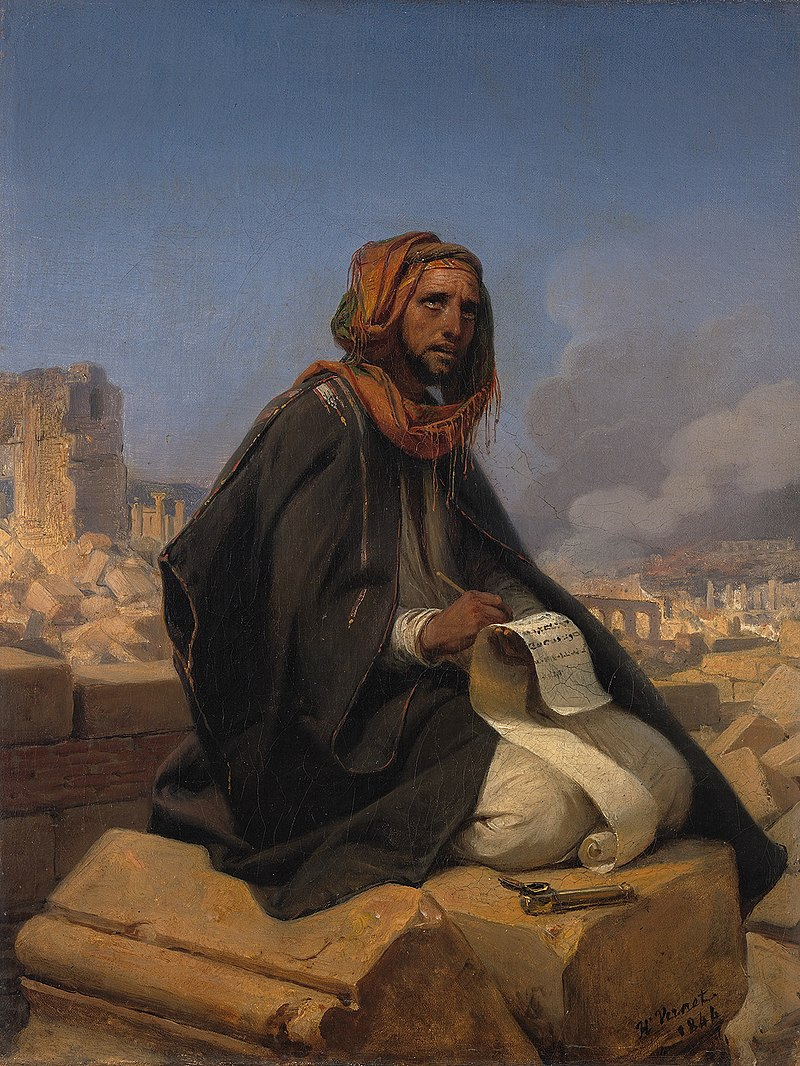
Baruch, the scribe mentioned 21 times in the book, was his script writer, co-preacher and probably his best friend. Ebed-Melech, was the Ethiopian eunuch that got him out of the pit of mud may have been his follower or friend. It was assumed that he was less tough against king Josiah because Josiah began to put away some of the idols after locating the scrolls that led him to repair the Temple. They may have shared sympathies for each other. Otherwise, Jeremiah was a loner; rejected by family (Jeremiah 12:6), neighbors (Jeremiah 11:19-21), false prophets (Jeremiah 20 and 28), friends (Jeremiah 20:10), the people (Jeremiah 11:21, 26:8), kings and the elite (Jeremiah 36:23) and God ordained celibate (Jeremiah 16:2).
Habakkuk and Zephaniah were his contemporary prophets in Judah about the time of Jeremiah and their words tended to corroborate each other without being direct copies. At least, they did not earn notorious titles like The Man Who Lives in Terror, The Weeping Prophet and God’s 11th hour Prophet that Jeremiah had to cope with on the streets (Jeremiah 11:21; 20:10).
Jeremiah endured the torture of seeing so much disregard for God, including blasphemy that weeping must have been a minor part of his agony. Imagine seeing in the physical the reality of what God was showing spiritually cannot be more agonizing. The state was not only worse than Sodom and Gomorrah, but the people also cared less about the God that lived in the Temple and as their haven to the extent that they sacrificed to pagan gods right next to Him until they suffocated God out of the Temple.
Our relationship with God should be strong enough to attract people to want to become our friends. This band of faithful friends first showed up when they resisted eating the food portions allotted by the most powerful but ungodly king. They shared a friendship tested by hardship, success, wealth and even death. They remained unwilling to compromise their faith in God in the face of death, proving the supremacy of a saving God even, from a blazing fiery furnace that roasted others.
Even Ezekiel wept at that when he saw the vision all the way in Babylonian captivity (Ezekiel 10:18). His social life could be nothing less than terrifying.
The Manuscript
The book of Prophet Jeremiah is the most voluminous book in the Bible. It is 52 chapters long, and short of Isaih’s 66 chapters but each chapter is loaded with long verses of prose making up for the large volume of the book. Jehoiakim may have been smart not to burn the manuscript given to him containing 20 years of prophecy because its replacement by Jeremiah was said to be more detailed. The mega-themes of the manuscript revolve around the sin of idolatry by Israel which God counted as adultery and a breach of the marital covenant or adultery. In addition, was the elite and state oppression of the weak which God gowns at because it violates the covenant of loving one’s neighbors.
The prophecies of Prophet Jeremiah encourage Judah to repent from these sins or face the wrath of destruction by Babylon and mockery by its neighbors. The prophecies also prescribe punishment for every nation involved in harming the Jews or mocking them as God deals out His punishment (Jeremiah 46 - 52; Deuteronomy 23: 4-5; Nehemiah 13:2). This principle equally applied to individuals who attack the preachers (Jeremiah 20 and 36). In addition, it contains prophecies about the restoration of Israel and the End Time Throne judgment.
Jeremiah’s Job Description (Jeremiah 1- 24)
It may be easy to label Jeremiah’s job description as simply a call to repentance from the sins of idolatry and oppression of the weak. However, when broken down over the course of the forty years of delivery and interaction, it becomes obvious that the theme may be unchanging, the delivery was modified by time. The warnings that preceded the preparation of Nebuchadnezzar were somehow different from after his siege began. Jeremiah’s prophecies continued to the end, even as Zedekiah consulted him several times. Therefore, over the first twenty-four chapters that we find summaries of Jeremiah’s job description, they may be outlined as follows:
- Theme - Israel has broken the covenant of marriage to God by resorting to the worship of other gods. God sees this idolatry as adultery by giving their allegiance to other gods.
- In addition, the elite including kings, nobles, priests, and prophets oppress the weak, especially, widows, orphans, and immigrants.
- Jeremiah was to violently jerk Judah out of the entitlement psychology that nowhere else could be safer than Jerusalem, the city where God Himself dwells - chapter 7.
- To announce the ominous imminent destruction of Jerusalem by God’s servant, king Nebuchadnezzar, if they did not repent - chapter 25.
- To predict the timeline for the return of their children to Jerusalem in 70 years
- Never consider refuge in Egypt.
- Restoration of Jerusalem - an End-Time event.
Focus of Jeremiah’s Assignment
In the complexity of this very large book of the Bible, we see Jeremiah railing very specific issues of importance to God that the people needed to know and to work on. These themes are equally important to every generation and worthy of note. They include:

- Sin: there are personal sins which when they go unchecked become trendy nationwide. The danger of callous disregard of leadership to these tendencies that materialize as disobedience of God’s law invites national disaster. The bandwagon effect of resisting repentance is an ingredient for God’s judgment and therefore, calamity.
- Punishment: with God justice is certain and defiance of warnings worsens the degree of God’s wrath. This generation was essentially wiped off because it rejected counsel. Their trust in the Temple as a ransom for God’s protection was shattered because they forgot that the covenant has two parties on either side of the agreement. When one vacates their promise, the agreement becomes invalid.
- God is the Lord of Creation: As much as God loves His creation, we remain dispensable. Therefore, we cannot dictate terms for our creator. One must note that as mean as Nebuchadnezzar was, he left some chosen few behind. That remnant helps human history but confirms that the principle of caring for the weak and the poor remains paramount in God’s eyes.
- Faithful Service: We cannot hide from God. Jeremiah alerted Josiah that the people were not faithful to his reforms, and they it was all lip service. Jeremiah’s unwavering 40 years of service to God stands in sharp contrast to this attitude. God’s approval is the ultimate ground for successful service.
Highlights of The Book of Jeremiah
Chapter 1 - authorship and date
Chapter 2-39 - Prophecies for united Israel and southern Judah to include Jerusalem
- Chapters 2 - 20 - general and undated warnings
- Chapter 7 - Temple Sermon
- Chapters 21 - 39 - specific and dated prophecies begin.
- Chapter 25 - Babylon is coming.
Chapters 30 - 35 - Hope in restoration
Chapter 36 - Instruction to write the book of Jeremiah - 20 years summary of prophecies.
Chapter 39 - Nebuchadnezzar arrives to destroy Jerusalem.
Chapter 26 - 45 - Punishing Israel
Chapter 46 - 51 – Judgment of other nations
Chapters 52 - longest poem summary of chapter 1-24, the pardon of king Jehoiachin and hope in future Jerusalem.
Judgment Prophecies
What commonly rings loud about Jeremiah other than the lamentation part are the judgment prophecies or idiomatically called doomsday prophecies. This is probably an unfair way to look at the prophet and his work. Jeremiah was raised to warn Israel, and particularly Judah of the impending visitation of the anger of God. In other words, to prevent the occurrence of the doom.
Nebuchadnezzar may have been gathering like a cloud, but the cloud could easily have dissipated or at least they could have taken shade to avoid the rain beating them so badly. If Judah had responded like Nineveh did, maybe the disaster would have been prevented. It is surprising that the reference to Shiloh which had disappeared with the Northern kingdom did not stir their consideration (Jeremiah 7:12-16).
Even until the worst happened to the last king, King Zedekiah, the message remained the same; that is, repent of idolatry and wickedness against the weak. In addition, when judgment came it was in stages and directed at different populations. Chapters 26 - 45 details judgment against Israel as a nation. Chapters 26-29 discuss judgment against the elites and nobility. Chapters 34 - 45 discuss the siege on Jerusalem under siege and the abduction of Jeremiah to Egypt. In the middle chapters 30 - 33 are detailed God’s plan for the return of the captives and a new Jerusalem.
The second part of the judgment prophecies details God’s anger against the Judah’s neighbors either for having participated in punishing the Jews or mocking them as their punishment unfolded. That makes up chapters 46 - 51. The prophecies and punishment for Egypt, Edom, Moab, Ammon, Damascus and Hazor are discussed in chapters 46 - 49. Chapters 50 - 51 discuss the verdict on Babylon for touching God’s anointed as alluded to by Moses in Genesis 11.
Relevant kings dating Jeremiah's Ministry
A review of the kings of Judah in Jeremiah’s time helps us to have a sense of chronology to the entire madness and waxed and waned in ugliness in the period. One can imagine how many kings Jeremiah had to appeal through for social change. Jeremiah witnessed these kings take Judah through so much unnecessary pain.
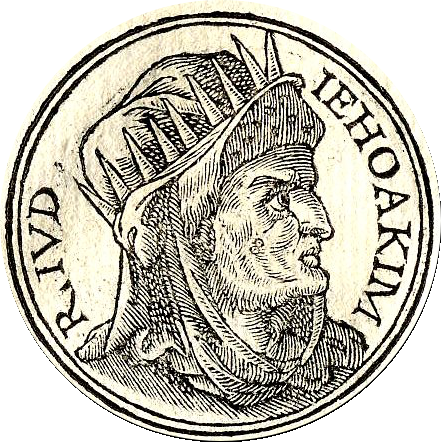
The kings mattered in Jeremiah’s prophecy because his primary purpose was to change the morality of the population. The kings and the elites guided social norms. Apparently, King Josiah had picked up on the fact that the country had wavered far away from the God of Israel and had begun some reforms. While Elijah and some other prophets like Zephaniah may have been extreme sounding, Josiah was amenable to improvements. Josiah was already on the throne before Jeremiah began to prophesy.
Josiah was about the youngest king to rule Israel. He was about 8 years old when he became a king (2 Chronicles 34:1). His time enjoys positive reviews despite its shortcomings, especially because it reflects the fact that even God looked upon Josiah favorably. He is called the Reformation king because he started a restoration of the Temple built ancestor Solomon and instituted decrees to eliminate idolatry in Judah.
Judah was still relatively independent and at peace about his time. However, the world was not at peace, the climate was of political chaos and rivalry among imperialists Babylon, Egypt and Assyria. His successors had tough decisions to make if they were to keep the peace. That included who to align with. Their traditional choice of Egypt conflicted with the counsel of God through Jeremiah that repentance and be saved was best, slavery in Babylon was the alternative. That pitched the elites against Jeremiah. Even the last of the kings, Zedekiah did not want to hear that despite the unfolding history. This was the socio-political environment where Jeremiah was challenged to point out that moral rectitude will save Judah’s independence, but that continued recklessness was a recipe for destruction in the hands of Nebuchadnezzar.
The High Priest, Hilkiah found a scroll as part of the restoration efforts commenced by Josiah. The king sought the help of Prophetess Huldah to confirm the authenticity of the scroll and its meaning. The portion of the scroll of Moses’ Law and prophecy that they found reads thus, “The Lord will exile you and your king to a nation unknown to you and your ancestors. There in exile you will worship gods of wood and stone!” (Deuteronomy 28:36, NLT). Naturally, this was concerning to Josiah, but the prophetess reassured him that because he had embarked on the reforms God will not let happen to him.
Yet, this kind of discovery and the attention it generated makes one wonder how the country was being guided at the time. Somehow, there were no copies of Laws of Moses intact anywhere to guide the nation. Everyone just did as they wished. In other words, they were left with traditions, wishes of the king and prophets to steer the country. Hence, the confusion about what prophet to believe. A shocked Josiah decreed that even this little piece found becomes the constitution of Israel. Luckily, there was an Assyrian king about 612 BC whose hobby was reading and had a large library of cuneiform tablets. His documentation has contributed immensely to the corroboration of many scriptural books.
Josiah reigned in 640 - 609 BC, and his time is chronicled mainly in 2 Kings 22-23. He was killed in the valley of Megiddo as he attempted to force scriptural injunction that no sword should cross his land by diverting Pharaoh Neco (Nahor) from passing through Israel on his way to fight alongside Assyria against the advancing Babylonian expansion. This kind of arrogance and trust in the uniqueness of Jewish ancestry and beliefs pervaded the land at the time. Jeremiah began his prophetic ministry during the reign of King Josiah.
They had this false psychology of invincibility that since God lived here in the Temple nothing can really harm God, therefore, they were protected. In addition, despite all territorial conflicts around them, no one really bothered Judah. Everyone just largely left them alone. Hence, Jeremiah must be wrong. Jeremiah warned Josiah that his people were not like-minded with the reforms that the king had introduced. They were not with him; they were only pretending (Jeremiah 3:6-10).
Nahor enthroned Jehoahaz (that is, Shallum, the fourth son of Josiah) as king of Judah to succeed his father. He was 23 years old at the time (2 Kings 23:31). He ruled for only 3 months before the Pharaoh took away to bondage in Egypt on his retreat from the loss of Carchemish, where he had gone to support Assyria as Babylon overran the Assyrians. Jeremiah prophesied that because of his wickedness, he will not return from the bondage in Egypt. In fact, Jeremiah stated God judges oppression of the weak and the down-trodden very severely. In addition, being nice to the poor is a way to make God happy (Jeremiah 22:1-16).
Nahor replaced Jehoahaz with his senior brother, Eliakim, who he renamed Jehoiakim as he took Jehoahaz with him to Egypt. Eliakim was the second son of Josiah. Apparently, Jehoiakim had lost it by this time. He wondered if there was any point in serving a God that allows Israel to be trampled this way. His reign started in 609 BC and reigned for 11 years serving Egypt and later, Babylon. He did not have much of a choice since Babylon has become the world’s superpower. He changed the traditional allegiance from Egypt to Babylon for 3 years before rebelling against Babylon too (1 Chronicles 3:15; 2 Chronicles 36:4-8; 2 Kings 23:34 - 24:17; Jer. 22:13-19).
He did not want to have anything to do with God and was absolutely intolerant of opposition. He killed Prophet Uriah (Jeremiah 22:17; 26). Non-biblical literature suggests that he was sleeping with his mother, stepmother, daughter-in-law among others. He is accused of murdering people, seizing their property and their wives. It is also claimed that he tattooed the name of God on his private part. He loved tattoos. If the king lived like this, one can only imagine what street life would be like. For a people who don’t remember where a copy of the Laws of Moses could be found, Sodom and Gomorrah would be hearsay. Imagine how God felt and the pressure that turned to weep.
Following the Temple sermon in Chapters 7 and 26, Jeremiah probably had a contract out for his life and was already banished from the Temple. By 605 BC, when Jehoiakim continued to back Egypt against Jeremiah’s advice, the distaste for and mistreatment of Jeremiah knew no bounds (Jer 22-23; 25-27; 35; 39).
Jehoiakim burned 20 years of Prophet Jeremiah’s manuscript angry at all the messages of doom (Jeremiah 36:21-23). Jeremiah prophesied that Jehoiakim will not end well and that was what happened (Jeremiah 22:18-19). He was thrown outside the walls of the city as a sacrifice to the invading Nebuchadnezzar’s army.
Jehoiachin was put on the throne to replace his father. He was the grandson of Josiah. He was the first king to be exiled along with his people. He reigned for 3 months as well (2 Kings 24; Jeremiah 13; 22). He reigned about 598 - 597 BC. It is claimed that he repented, and God granted the favor of a pardon from Nebuchadnezzar who allowed him to begin eating at his table as a sign of freedom and restoration (Jeremiah 52).
Nebuchadnezzar installed Zedekiah, Josiah’s son, uncle of Jehoiachin to replace sacked Jehoiachin. A society of false prophets led by Haniah confused Zedekiah saying that Jehoiachin will be back in 2 years with the vessels of the Temple. Zedekiah rebelled against Babylon. He was captured, his children killed in his presence and his eyes taken out by Nebuchadnezzar. He was sent to jail to join Jehoiachin.
Prophetic Illustrations by Jeremiah
Imagery is an important communication tool and Jeremiah used them extensively as God led him to impress upon the nation the urgency or significance of the message and the importance of taking corrective action. We will examine some of the most prominent ones here.
Branch of an almond tree - Jeremiah 1:11-12
Apart from the assurance of God’s support and protection by the touching of Jeremiah’s mouth by God, this vision of the branch of the almond tree was apparently the first one to convince Jeremiah and the people of Judah that Jeremaih had received God’s call. Time is of essence in this imagery. It does not matter how the interpretation is perceived, the value of time cannot be underestimated. Clearly, one can perceive that irrespective of the passage of time, God’s judgment is imminent. It has also been suggested that the judgment is certain and is approaching swiftly. The almond tree means watching and God specifically mentioned that in verse 12.
Pot of boiling water spilling from the north - Jeremiah 1:13-14
The pot of boiling water spilling from the north symbolizes the future imperialist expansion campaign of Babylon spilling over to terrorize Judah. It means that the spill could have been controlled and the pot’s face redirected elsewhere by God if only the people listened.
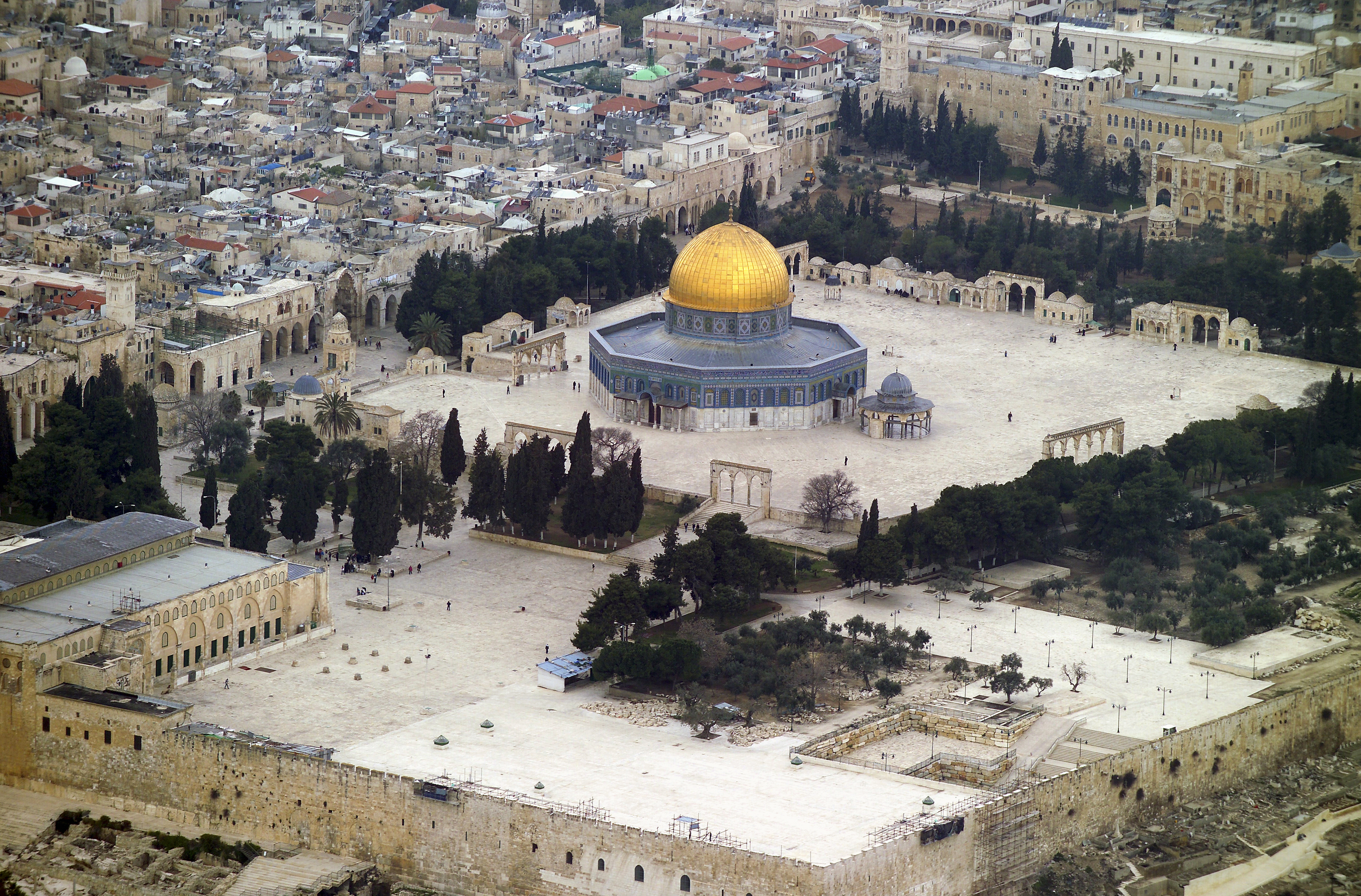
Linen belt - Jeremiah 13:1-2, 11
God’s people are commanded to be holy people (Exodus 19:6). The rottenness in the land does not represent them. They found it easy to defile the Temple and oppress the poor. Priestly garments are made of linen, especially those close to the skin (Ezekiel 44:17-18). This is the representation of holiness before God.
Rotten linen sash or waistband - Jeremiah 13: 3-7; 8-10; 11
This is another metaphorical illustration of what Judah has become. Israel was as close to God as a waistband made of pure linen. The emblem of God, Israel that was to showcase the glory of God to the rest of the world had become so rotten by imbibing worldliness. Judah is a disappointment. Therefore, it faces ruin in judgment. God is about to ruin their pride.
Potter’s clay - Jeremiah 18
As the clay rolls on the potter’s wheel, the potter has the right to modify defects that appear or leave it. Permissiveness is not perfection. The potter has the power to destroy that pot and start all over. Judah must understand that God has the power to destroy it completely and start a new society. In fact, this is what happened with most of these people sent into captivity and their children allowed to return. When stubbornness becomes a way of life, it is hostile to the spirit of God.
Shattered clay jars - Jeremiah 19
The people should not be surprised that God will break Judah in pieces just like the clay jar has shattered. God was angry that not only has he never demanded sacrifices from the people, they have gone to the extent of sacrificing their own children to Molech in the Temple. Therefore, God will deal angrily with such an affront.
They turned the Valley of Ben-Hinnon or Topheth which used to be the garbage dump for the city into altars to offer sacrifices to Molech. God said these killers of the innocent will be destroyed by the invading armies in this valley and it shall thereafter be called the Valley of Slaughter. Accounts of fulfillment of this prophecy can be found in Lamentations 2: 20-22 and 4:10-12.
Two baskets of figs - Jeremiah 24
This is an explanation of the outcome of the prophecy in chapter 22:24-28. God was showing Jeremiah that Nebuchadnezzar’s choice of captives meets with God’s intentions. Babylon took with them nobility and anyone with administrative skills capable of putting a rebellion together. They took craftsmen also to be used for Babylon’s building agenda.
However, God in this vision is telling Jeremiah that those good figs going to Babylon are being protected from undue influence from the society where they would have picked up bad habits as they mature compared with the ability of God to reach their hearts in exile and bring them to reoccupy Judah as godly people. The false sense of security would have become obvious to them. The impact of Daniel and his three Hebrew friends as well as Ezekiel buttresses this view.
The bad figs represented those who stayed back in Judah or those who ran away to Egypt for refuge. They are rotten and useless while God will use the captivity to refine the exiles.
Cup of wine filled to the brim - Jeremiah 25
This vision represents the filling up of God’s anger against all the nations that meted out horror, contempt and curses against Israel. Starting from the nobility in Judah, to foreign lands. These nations were all named across the north, east, west, south and across the seas everywhere in the world. Then, Babylon itself drank from the cup of The Lord’s anger from the hands of Jeremiah. None of them had a choice, they just had to drink it. This was their reward for punishing God’s people.
Ox yoke tied with leather on Jeremiah’s neck - Jeremiah 27
This message to king Zedekiah and the people to submit to Nebuchadnezzar during the next coming invasion consisted of a wooden yoke fastened with leather normally tied around the neck of oxen to force them to plow. The suggestion is that the country must submit under Babylon’s yoke or be destroyed.

Large rocks buried underneath Pharaoh’s palace entranceJeremiah 43:8-13
When Jeremiah was abducted to Egypt against his choice by Johanan and they settled in Tahpanhes, the Lord gave Jeremiah another vision, saying to bury large rocks under Pharaoh’s palace while the Israelites watched. Jeremiah was to prophesy that Nebuchadnezzar would eventually come to sack Egypt and those rocks will form the foundation stones for his canopy while he supervised the destruction of Egypt.
Scroll sunk in the sea - Jeremiah 51
This scroll contained a message that Jeremiah sneaked into Babylon through a staff officer in king Zedekiah’s entourage. In addition to encouraging the captives, Seriah, the purveyor will roll up the scroll, tie a stone around it and throw it into River Euphrates to symbolize how Babylon will eventually sink, never to rise again. This was God’s judgment on Babylon for the oppression of the Jews.
Jeremiah’s Message
One may want to dismiss the time of writing the Book of Jeremiah being about 600 years even before Jesus Christ as being irrelevant to contemporary living. However, even Jesus Christ and His similar message, the same social ills still persist, at least in the 21st Century as of these comments. One just has to look at modern celebrities or any of the award shows to see the competition about which woman was most naked.
Then, they go on to make pleas for social change to accommodate abominable gender issues and animal rights. It is no more stretching to spy a cleavage, the idea is to showcase how nicely shaped the silicon-implant boost turned out. So, with the nipples jutting at you, there is nothing more to imagine. Just compare and choose whose bed you are ending that night. Society remains careless of godly standards. Jeremiah makes the point that bad leadership puts entire nations in trouble with God. On the other hand, national repentance provokes God’s mercy.
It is also clear from the Book of Jeremiah that the Jews are God’s special people. They were chosen and a marriage covenant was sealed between them. The purpose of Israel was to serve as an emblem of purity that showcases a holy God. Under no circumstance was anyone encouraged to think evil of the Jews, even if God sent you. Even those who commented on their sufferings got punished for mocking the anointed of God.
Jeremiah also emphasized the role of covenant in marriage and that once the deal is struck, one side cannot just decide to walk away from the agreement without repercussions. That God is the creator of everything, which makes everything dispensable before Him.

Lessons Learned
What Jeremiah said
Israel has broken the marriage covenant with God and must repent to avoid the strong arm of justice. God views their idolatry as adultery which is another sin against their jealous lover. God will forgive their sins if they repent. God plans a new covenant with their children if they refuse to repent. That means that the sinning generation must be destroyed. Poor leadership choices are putting the people at the risk of God’s anger. Maltreatment of the weak such as widows, orphans and immigrants being taken advantage of by the elites upsets God and requires repentance or the sins will also be visited with justice.
It is never too late to repent, the degree of punishment increases with stubborness (Jeremiah 25:1-13). God always looks out for His own.
Jeremiah had visions of a future with a replacement of the destroyed Temple, a New Jerusalem, a Messiah, and the writing of God’s laws on the heart of the people. With time, we begin to get a clearer understanding of this end time Jewish paradise that almost every major prophet since Moses talks about. Even in the 21st, Israel looks forward to this brilliant future as parameters begin to take shape.
What Jeremiah did not say?
Jeremiah did not talk about Israel’s rejection of the Messiah like Isaiah and others did. This event has happened. Yet we know from Daniel and other prophets, especially Apostles Paul and John, the role of the Holy Spirit promised by Jesus Christ in writing the laws of God on the hearts of every believer. Even though, Jeremiah did talk about the new Temple which shall surely come as Ezekiel assures us, we also know in this dispensation of the Holy Spirit that the Messiah is coming back for His own bride, the Church and when the new Jerusalem descends both the Church, The good fig Jews and their tribulation era converts worldwide will reign in eternity with Christ.
Mission Fields
People Saw It
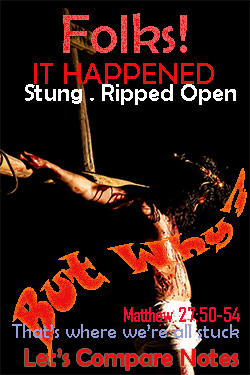
Comments

Our Facebook page linked directly above is a very vibrant community where various topics get fleshed out. We also engage in discussions on Twitter and our LinkedIn group is growing beyond imaginations. Feel free to post your comments in your favorite format.

